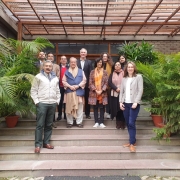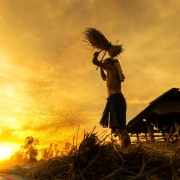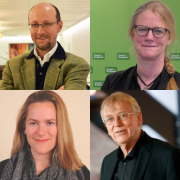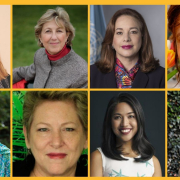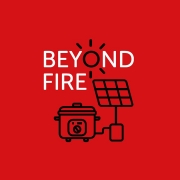First stakeholders’ workshop on “Scaling up Agroecology in the Himalayas”
First stakeholders’ workshop on “Scaling up Agroecology in the Himalayas”
Background
The urgent need to transform our food systems is now widely acknowledged. Climate change, hunger, malnutrition, biodiversity loss and human rights violations are just a few of the challenges that are strongly connected to the way we produce, trade, and consume our food. Agroecology has been globally identified as a key transition pathway that can more holistically address the multifaceted crises we face.
To promote this transition pathway and the food systems approach, IFOAM – Organics International and the World Future Council organized a virtual workshop on “Scaling up agroecology in the Himalayas”. The interactive workshop brought together stakeholders from Bhutan, India and Nepal to discuss the fundamental steps needed to achieve sustainable food systems through agroecology in the Himalayas. Participants exchanged on the current situation of food systems and agroecology in the Himalayas, reflected on the main challenges and opportunities for positive change, explored available policy solutions that support sustainable and healthy agri-food systems, and discussed their potential improvements as well as ideas about additional policy initiatives.
Organizers and supporters
The workshop was organized by the World Future Council and IFOAM-Organics International and was supported by the Deutsche Gesellschaft für Internationale Zusammenarbeit (GIZ) GmbH on behalf of the German Federal Ministry for Economic Cooperation and Development (BMZ)
.
Summary
The lively and engaging two-day workshop took place online on March 14-15, 2023, bringing together 60-70 stakeholders from Bhutan, India and Nepal. Attendees included policymakers, parliamentarians, academia, civil society organizations, private sector representatives and donors.
The first day was dedicated to discussing the main challenges and opportunities of scaling up agroecology in Bhutan, India and Nepal. Sessions were structured around the food systems approach and included an overarching panel discussion and four breakout groups. The breakout sessions covered a range of topics, including resilient, inclusive, and diverse food production systems, sustainability along all food value chains, sustainable and healthy diets, as well as coordination and integration for more policy coherence and consistency.
On the second day, participants built on the discussions from day one and focused on policy dimensions of sustainable food systems, again through panel discussion and breakout groups. They identified and discussed policy solutions that support and hinder sustainable and healthy agri-food systems, discussed policy improvements, exchanged on existing policy gaps and reflected on how policy coherence and consistency could be improved.
Why was this event held? What was the aim? Over the last 10 years, Bhutanese, Indian and Nepalese policymakers have increasingly recognized the need for transition towards sustainable agricultural systems to preserve their natural resources and improve livelihoods for their rural populations. Political commitment has been implemented with varying degrees of intensity, including policies and programs with specific budget earmarks for measures supporting organic farming and agroecology. Recently also other parts of food systems, such as value chains and markets, have received more attention from policymakers. To build on this momentum and to explore how to better scale up agroecological food systems, we organized this two-day interactive stakeholder workshop. The event brought together food system stakeholders from diverse backgrounds, who share a common understanding of the need for change. We created a platform, through which we can collaborate and find innovative solutions to accelerate the transition towards more sustainable food systems based on agroecology. The workshop is part of the project “Scaling up Agroecology in the Himalayas”, which aims to draft a common roadmap and which builds on the digital event “Scaling up Agroecology in the Himalayas Together” held in April 2021 (More information at: https://www.ifoam.bio/news/high-level-policy-experts-discussed-current-situation) as well as on the study “The Mainstreaming of Organic Agriculture And Agroecology in the Himalaya Region” (Available at: https://old.worldfuturecouncil.org/the-mainstreaming-of-organic-agriculture-and-agroecology/). Will there be more such events to come in the future? This workshop is just the first in a series of stakeholder events that will conclude by the end of 2023 with a common roadmap. By scaling up agroecology in the Himalayas, we can create a blueprint for sustainable food systems that can be replicated in other regions around the world. Moreover, this is a crucial step towards ensuring our common future on this planet, acting upon the fact that the health of our ecosystems and the well-being of all living beings are intimately interconnected.
Major takeaways


Welcome to the V. World Organic Forum
Welcome to the V. World Organic Forum
How can the 17 Sustainable Development Goals of the UN (SDGs) be successfully implemented in rural areas through a bottom-up movement? What building blocks do the SDGs provide for regional planning and how do we measure this? What are the opportunities and added values of organic agriculture for implementing the SDGs in regions around the world? How does the German government’s international development cooperation take up the practical localization of the 2030 Agenda?
What potential do communities of strong women, regenerative agrarian culture and new approaches to climate-friendly agriculture offer for anchoring the SDGs in everyday life on the ground?
At the V. World Organic Forum we want to discuss and work on these and many other questions together with highly renowned experts and protagonists of change from global civil society, science and politics as well as farmers from regions around the world and all interested people. We will learn about best practices, develop new approaches and inspire each other to bring the UN 2030 Agenda to the ground!
This year’s conference will again take place in a face-to-face format at Schloss Kirchberg (Kirchberg Castle) from June 27 to 30, 2022. The forum is an impulse-giving place for building a global network of SDG regions, in the North as well as in the South, in which the 17 Sustainable Development Goals are implemented and filled with life!
The conference is organised by Stiftung Haus der Bauern – Akademie Schloss Kirchberg and supported by the World Future Council.
Under the link you can find more information about the conference and register for participation.
Press Release: World experts on Hazardous Chemicals form Jury of Future Policy Award 2021
On today’s World Consumers Day, the World Future Council announces the names of experts forming the jury of the Future Policy Award 2021.
Report launch: Beyond Fire: How To Achieve Electric Cooking
On the eve of the biggest global “Fridays for Future” youth strike for climate, the World Future Council offers its strong support to the dedicated young people holding leaders accountable for their climate commitments. If we are to meet the 1.5°C target of the Paris agreement bold action needs to happen now.
You need to load content from reCAPTCHA to submit the form. Please note that doing so will share data with third-party providers.
More InformationYou are currently viewing a placeholder content from amChart. To access the actual content, click the button below. Please note that doing so will share data with third-party providers.
More Information

